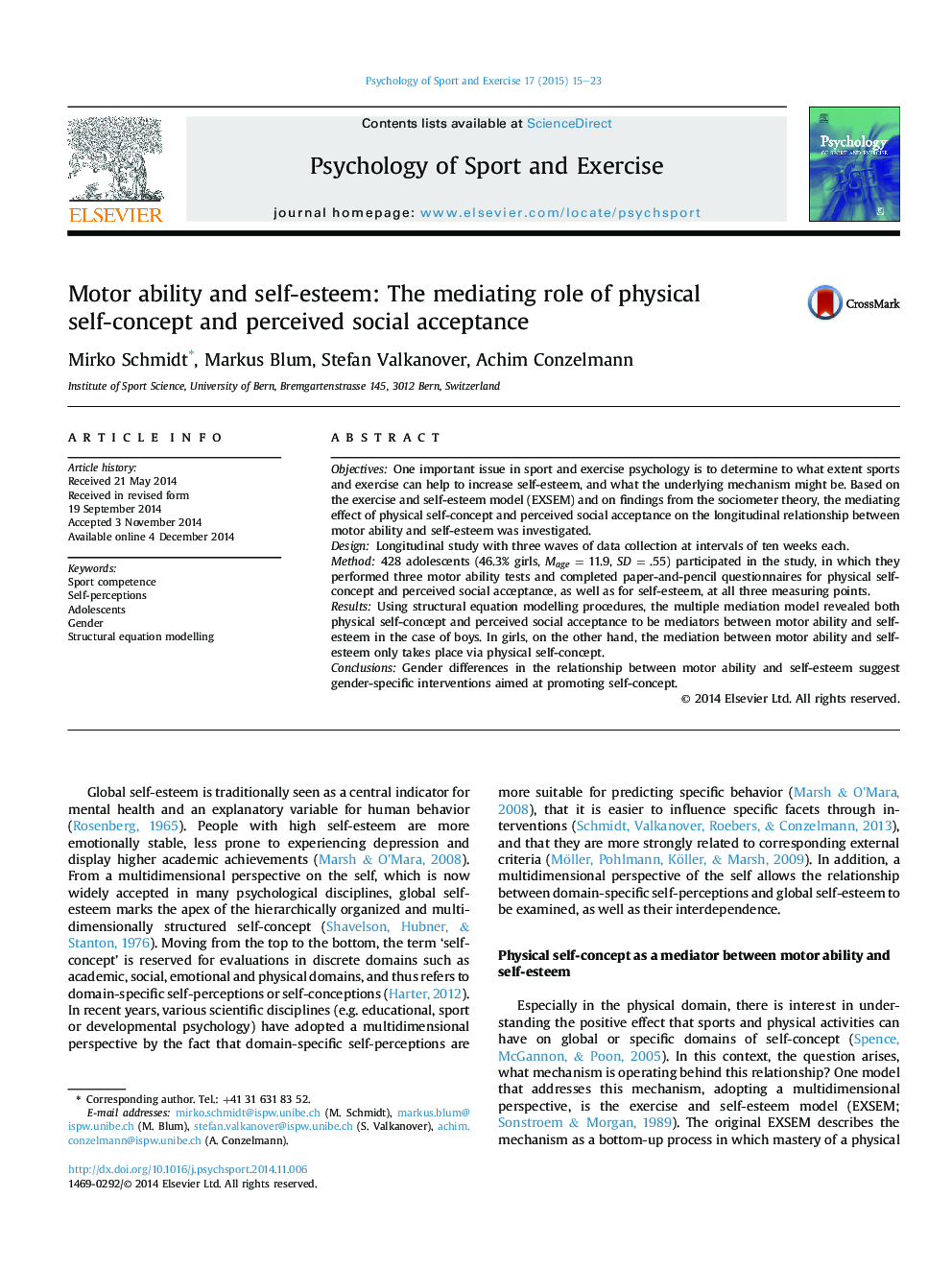| Article ID | Journal | Published Year | Pages | File Type |
|---|---|---|---|---|
| 894292 | Psychology of Sport and Exercise | 2015 | 9 Pages |
•The longitudinal relation between motor ability and self-esteem was investigated.•We used structural equation modelling to perform a multiple mediation model.•In boys, physical self-concept and perceived social acceptance are mediators.•In girls, only physical self-concept mediates the relationship.
ObjectivesOne important issue in sport and exercise psychology is to determine to what extent sports and exercise can help to increase self-esteem, and what the underlying mechanism might be. Based on the exercise and self-esteem model (EXSEM) and on findings from the sociometer theory, the mediating effect of physical self-concept and perceived social acceptance on the longitudinal relationship between motor ability and self-esteem was investigated.DesignLongitudinal study with three waves of data collection at intervals of ten weeks each.Method428 adolescents (46.3% girls, Mage = 11.9, SD = .55) participated in the study, in which they performed three motor ability tests and completed paper-and-pencil questionnaires for physical self-concept and perceived social acceptance, as well as for self-esteem, at all three measuring points.ResultsUsing structural equation modelling procedures, the multiple mediation model revealed both physical self-concept and perceived social acceptance to be mediators between motor ability and self-esteem in the case of boys. In girls, on the other hand, the mediation between motor ability and self-esteem only takes place via physical self-concept.ConclusionsGender differences in the relationship between motor ability and self-esteem suggest gender-specific interventions aimed at promoting self-concept.
